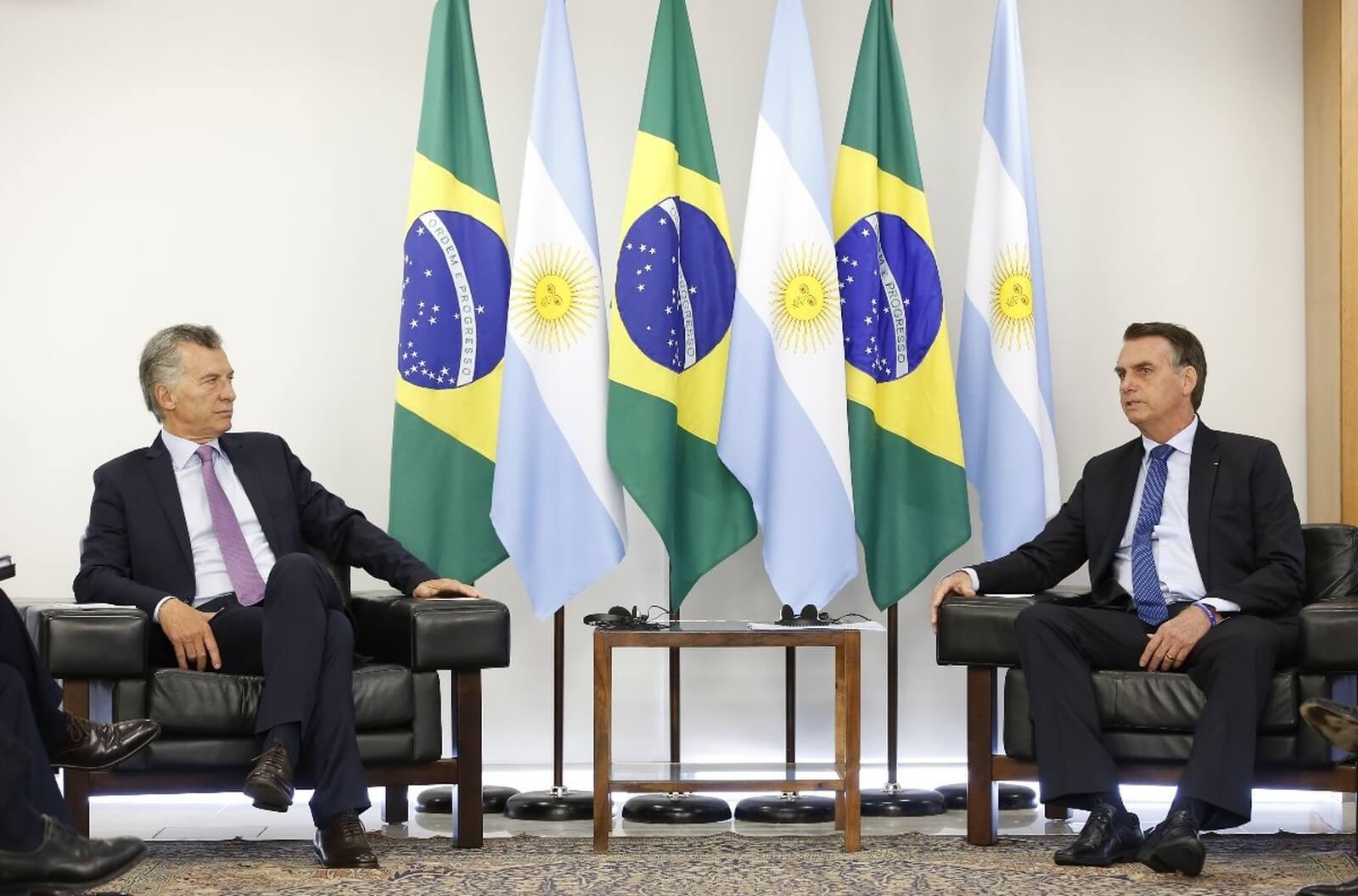
Read more
Blog, Migration Governance
The twist and turns of asylum laws in Italy
The so-called “Salvini Decree” weighs heavily upon legal provisions concerning the right to asylum in Italy. And though many provisions of the Decree reflect a policy aimed at strongly restricting the number of persons...
Recent decisions and actions of some governments of the ‘Southern Cone’ of South America have created major controversies and put the migration agenda in the spotlight. Chile decided not to sign the Global Compact for Migration (GCM)1 just a few hours before the Marrakesh Conference2 started. The new government of Brazil confirmed that the country would leave the agreement. Argentina decided to support the GCM but, at the same time, government officials started harshening their discourse and adopting restrictive policies towards migration. These countries are key players in regional migration governance and, until recently, had a very progressive approach towards migration. So, what has changed? Are we witnessing a rising ‘tide’ of anti-immigration sentiment in South America?
I will argue that there is no rising anti-immigration sentiment in South America, but rather, that migration has become more visible in public discourses and more politicised. This, I argue, is due to two major factors that trigger political change: the first factor is the power struggle between ‘pro-human rights’ actors and ‘securitist’ actors, and the second factor is external incentives, mainly, the relationship with the US. The crucial element that defines whether the ‘securitist’ or the ‘pro-human rights’ group prevail and whether the relationship with the US will be a collaborative or competitive one is the ideology of the President of each of the South American countries.
Politicisation of migration and political change in the Southern Cone
Some of the changes in the migration policies of the abovementioned Southern Cone countries came as quite a surprise. The best example of this is Chile. In our fieldwork for the MIGPROSP project, we could see that Chile participated actively in the entire negotiation process of the GCM (which lasted for 18 months) and even took a leading role in the adoption of a Latin American position on the GCM. So when the Chilean executive, led by President Piñera, decided not to sign the GCM in Marrakesh, even a part of the Chilean delegation as well as the Chilean Ambassador to Morocco (that was the one supposed to sign) were shocked.
In 2017, Brazil adopted a very progressive migration law3, which resulted from a long process in which many government and civil society actors participated. Brazil also participated actively in the GCM negotiations, sending high-profile politicians as representatives. Brazil’s new President, Jair Bolsonaro, had already showed signs of a more restrictive approach towards migration, so the pull out was not a major surprise. The point is that it marked a sharp change in the position that the country held for the last 20 years at the national, regional and international levels.
For its part, Argentina decided to remain as part of the Global Compact. But the Macri administration adopted very restrictive migration policies and high-level government officials started making openly anti-immigrant, often misguided, declarations. This restrictive turn is quite significant, given that Argentina used to lead the regional migratory agenda and played a crucial role in developing an open-door regional regime for human mobility.
So what has changed?
From the early 2000s and until the mid-2010s, leftist, neo-populist parties tended to prevail in the region. These progressive governments promoted a social and politically oriented regional integration model. In the framework of the so-called ‘post-hegemonic/post-neoliberal’ regionalism, a common regional approach towards migration emerged. It was based on non-criminalisation of migration, the expansion of migrants’ rights, the enunciation of the ‘right to migrate’, the liberalisation of residence, and the promotion of regional freedom of movement.
The political landscape of the Southern Cone started changing in 2015, when Mauricio Macri, a conservative, took office in Argentina. In 2016, in Brazil, Dilma Rousseff, a neo-populist progressive, was impeached and Michel Temer, another conservative, replaced her. In March 2018, Sebastián Piñera, a rightist, took office in Chile and in December, Jair Bolsonaro, an extreme-right politician and former military officer, won the Brazilian Presidential elections. The ‘turn to the right’ of three of the most influential countries and largest economies in the region marked the start of a new stage in South American politics. The region has a long history of political ‘waves’, instability and variation. But I will suggest that we can distinguish two main sources of political change that explain shifting political approaches in the area of migration.
Is migration an important issue in Southern Cone politics?
The politicisation and increased visibility of migration in the Southern Cone depends, first, on the prevalence of one type of actors out of the two types that exist at the domestic and regional levels. Also, these developments are relatively independent of public opinion. For instance, in Argentina, only four per cent of the population are worried about “immigration control”. The most pressing issues for the Argentine people are related to the economic situation of the country. In Chile the picture is similar. A public opinion study conducted in 2018 found that ‘immigration’ is the tenth most important issue of concern. In Brazil, migration was not even an issue in the last elections, and it is still relatively not relevant, as Brazilians are more worried about the economy, health services and security.
There are two coexisting groups of state and non-state actors that are influential in migration governance in the Southern Cone: the ‘securitist’ and the ‘pro-human rights’. Regional integration encouraged the formation of transnational networks for both groups and thus contributed to the diffusion of ideas, the formation of coalitions and shifts in the relative power of diverse governmental and non-governmental actors that resulted in an overall progressive regional mobility regime. The coexistence of the two groups also explains why this regime is often characterised by contradictions: it has a human rights approach but with a strong focus on migration control.
In the 2000-2015 period, the pro- human rights group tended to prevail and thus, tended to impose its visions in the domestic, and especially, regional agendas. But since 2015, the securitist actors have started gaining ground rapidly in South America. These are the same actors that label migration as a ‘problem’ and relate it with security issues in Argentina, Brazil and Chile. As they increase their power and visibility in the media, these actors try to put forward the ‘security and immigration’ agenda, thus politicising and increasing the public importance of a relatively non-relevant issue for the electorates.
The influence of the international level on migration governance in the Southern Cone
The second part of my explanation of the changes in the migration policies of these three countries lies at the international level. Latin American politics and policies (particularly foreign policy) have always been determined by the relations with the Global North and particularly, with the US. The way in which migration governance actors in the region interpret external incentives, and especially the terms in which they define their relations with the US, lead to policy outcomes.
While during the 2000-2015 period, foreign policies (except in the case of Chile) and regionalism were defined by opposition to the US. Instead, the new administrations’ foreign policy strategies are based on a closer relationship with the Global North and particularly, with the US.
What happens with the two factors that trigger political change (domestic and regional influence groups and the interpretation of external incentives, particularly, relations with the US) depends on a crucial factor: presidential ideology. The relative power and influence the securitist and pro-human rights groups have in shaping national and regional migration policy agendas are highly dependent on whether the President of the country allows them to do so. At the same time, the way in which Presidents understand external incentives and, particularly, relations with the US is crucial. For the Macri administration, the US is part of the second ‘circle’ in its ‘concentric circles’ foreign policy strategy. The similarities between the Macri administration’s and the Trump administration’s approaches and discourses in the area of migration have already been documented. For the Piñera administration, maintaining good relations with the US is crucial. Keeping the visa waiver is part of the national interest. This, together with US pressure towards allied countries to leave the GCM, could explain Chile’s last-minute pull-out. For his part, Bolsonaro shares many ideas with Donald Trump and is making clear that he wants Brazil’s foreign policy to go in the same direction as the US’ in many core issues.
In Latin America, regional policies and politics entail a paradox: high levels of politicisation can lead to more collective action and thus, to the advancement of regionalism. This means that we are currently facing two opposing but related regional scenarios: in the first one, regionalism diminishes, and the most important regional integration scheme, Mercosur, is reduced to a free-trade area. In this scenario, the progressive regional policies that led to the liberalisation of circulation and residence in the region are weakened. In the second scenario, regional policies could be weakened, but cooperation on security and control of human mobility are increased, boosting the regional agenda on security. During the 2000-2015 period, high politicisation of regionalism allowed migration to be a factor for the advancement of regional integration. In this new period, migration could paradoxically lead to more, but different, regional cooperation. The prevalence of either of these scenarios is ultimately dependent on the personal understandings and visions of three presidents.
2. The Conference took place in December 10-11th. It was the last of a series of negotiation meetings that finalised with the approval of the GCM by 164 countries. ↩
3. But some of its key articles were vetoed by President Temer. ↩
The EUI, RSCAS and MPC are not responsible for the opinion expressed by the author(s). Furthermore, the views expressed in this publication cannot in any circumstances be regarded as the official position of the European Union.

